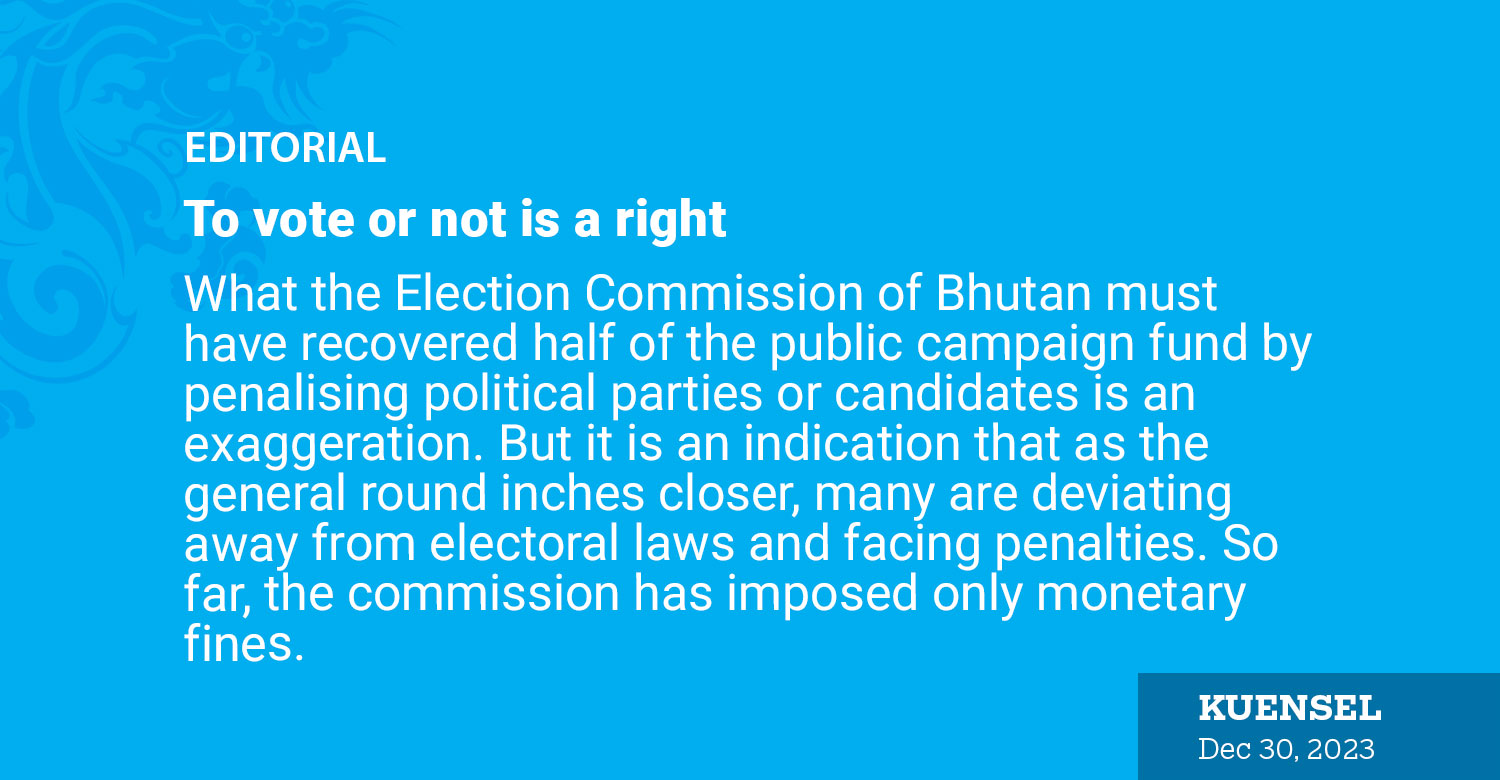What the Election Commission of Bhutan must have recovered half of the public campaign fund by penalising political parties or candidates is an exaggeration. But it is an indication that as the general round inches closer, many are deviating away from electoral laws and facing penalties. So far, the commission has imposed only monetary fines.
Penalising parties, candidates or their party workers is sensitive. As the general election nears and with the media reporting and social media amplifying it to suit their intentions, the actions taken could raise doubts among voters. For the neutral or the undecided voters waiting to make up their minds, parties violating election rules can influence their decisions.
Going by the list of violations compiled by the Office of Media Arbitrator, both the Bhutan Tendrel Party and People’s Democratic Party had been violating elections rules, particularly the social media rules. Most of the violations are related to what was said or spread on social media Apps like WeChat and WhatsApp. The most common is attempting to target the candidate or the party by spreading defamatory remarks, hate messages and personal attacks on social media platforms.
The commission received and took action on 14 complaints as of December 28. There are few cases being looked into. This is just the tip of the iceberg going by what people are saying online or offline. There is a clear split in Bhutanese society. Unfortunately, it is about trying to bring the other candidate down, rather than something more substantial.
One party has won the primaries with a huge majority and is trying to protect the lead to win the elections. The other sounds confident of the support of those who lost and is fighting hard to outdo the majority winner. In the process, a lot is being done and said.
The stake revolves around who will be the ruling or the opposition party. Voters are being coerced to vote for the candidate likely to be in the ruling party for the promises of fulfilling the pledges. With nine days left for the poll day, parties will have to do their best. But violating rules, whether reported to the election commission or not, is not acceptable.
There are voters who will not question what parties say on social media platforms. Some are worried, if not scared. Spreading rumours, such as the census department of the home ministry providing political parties details of who came to vote or not is to instill fear in voters. Voting is a fundamental right. No one can be forced to vote or abstain.
With both parties claiming to be the favourite, voters are worried of repercussions of the election. A voter from Gomdar, for instance, came to the media to verify if his decision to not travel to Gomdar to vote would be revealed by the home ministry. His family is based in Paro without postal ballot facility. Travelling to Gomdar is expensive.
No party had the right to threaten him, nor will our institutions collude with parties to expose his choice to vote or not. There are many doubts to be cleared and fears to be allayed as the election nears. It is the responsibility of all of us to let people exercise their franchise.


